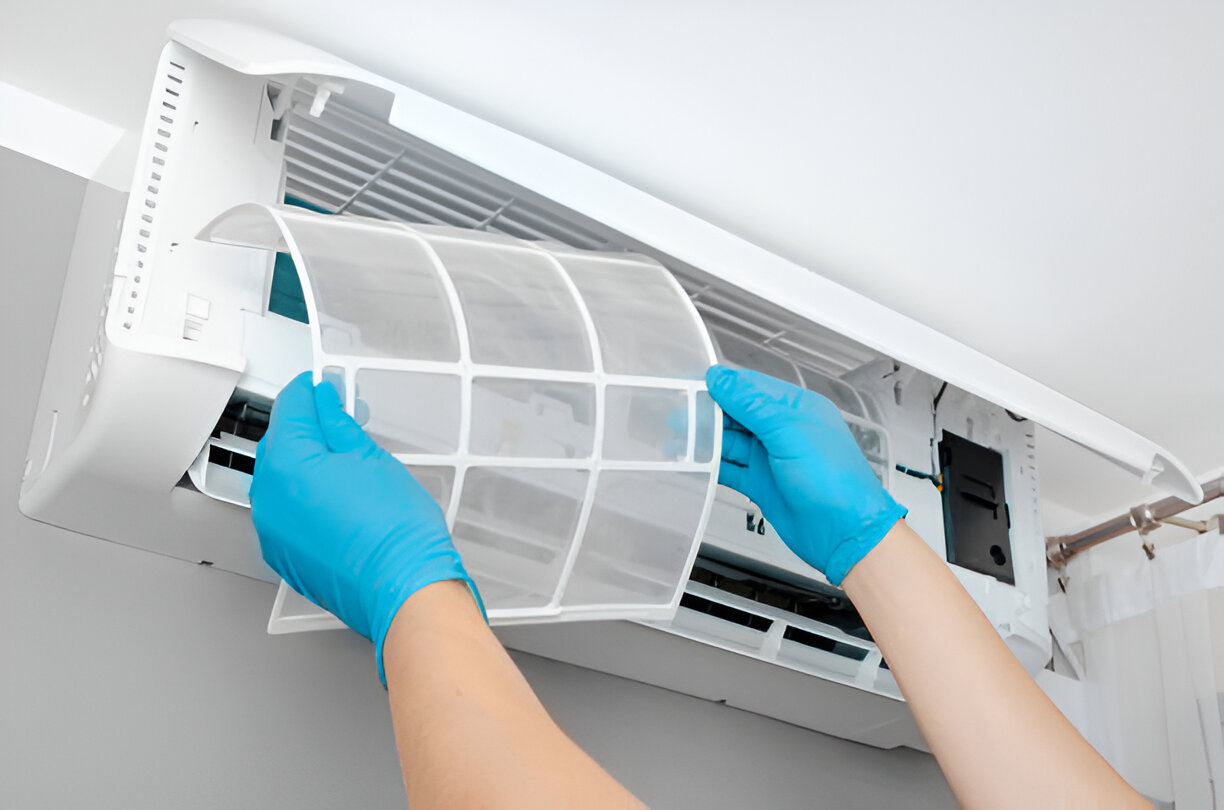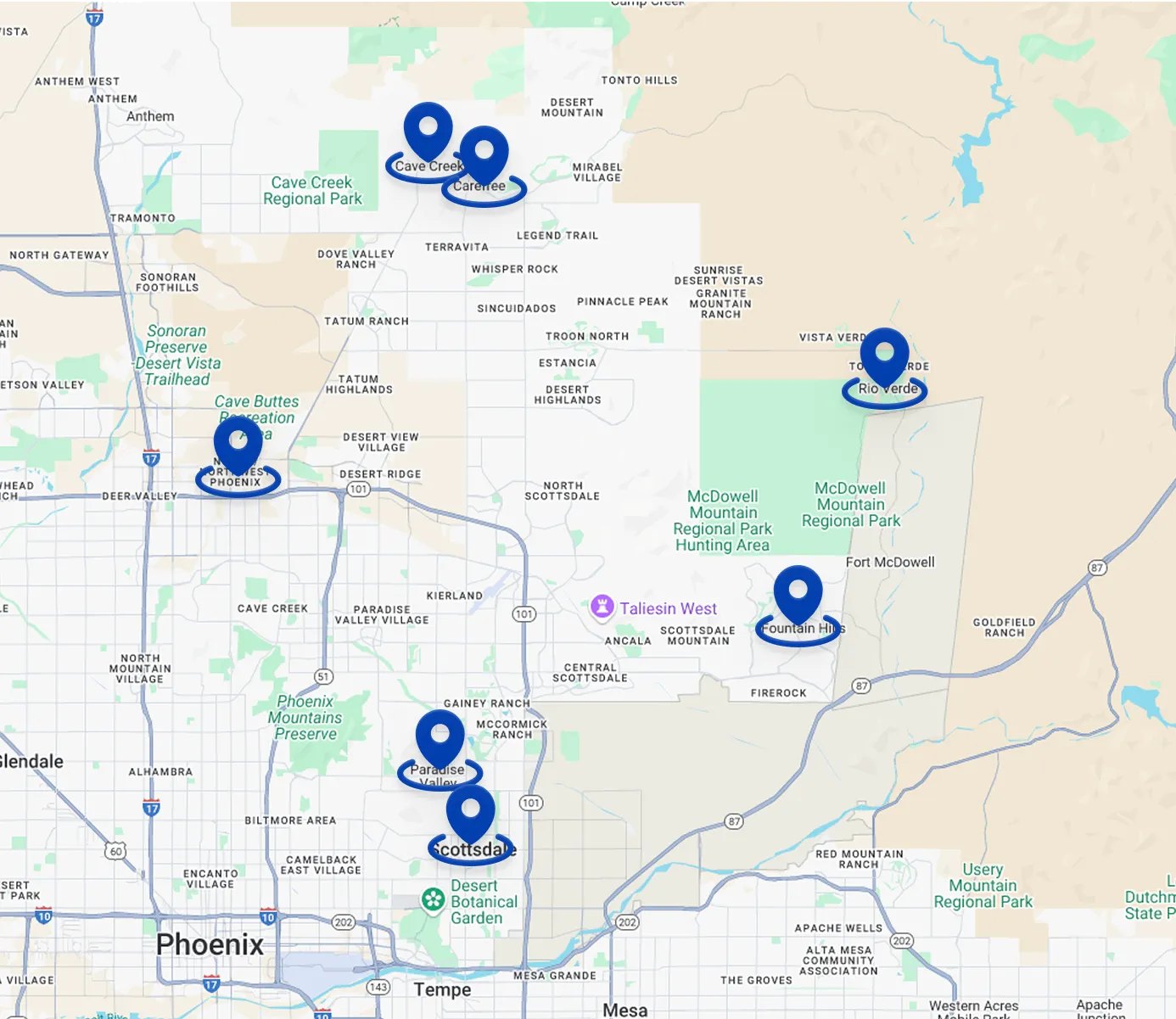Mini-split Replacement in North Phoenix, AZ
When a ductless mini-split no longer delivers reliable cooling or begins costing more to run than it should, a full replacement is often the most cost-effective, long-term solution. In North Phoenix, where summer highs and sustained cooling demands stress HVAC equipment, replacing an aging or improperly sized mini-split restores comfort, improves energy efficiency, and reduces the risk of mid-season breakdowns.

Common mini-split issues in North Phoenix homes
- Weak or uneven cooling — Units that struggle to keep pace during prolonged heat spells usually point to undersizing, failing compressors, or refrigerant issues.
- Rising energy bills — Degraded capacity, older refrigerants, and inefficient compressors make systems consume more power during hot months.
- Refrigerant leaks or outdated refrigerant — Older equipment may use phased-out refrigerants or have leaks that reduce performance and harm the environment.
- Noisy operation or frequent cycling — Fan motors, compressors, or control faults cause noise and shorten component life.
- Outdoor unit corrosion and dust buildup — Desert dust, monsoon storms, and high daytime temperatures accelerate wear on outdoor condensers and fins.
- Failed electronic components — PCB/controls and inverter modules can fail after years of exposure and thermal cycling.
These problems are particularly common in North Phoenix because of long cooling seasons, high daytime temperatures, frequent use of multi-zone systems, and environmental factors like dust and monsoon moisture.
What a professional mini-split replacement service includes
A complete replacement is more than swapping hardware. A quality service follows a clear, safety-focused process:
- On-site assessment and accurate system sizing
A technician performs a room-by-room load calculation (Manual J or equivalent) to size each indoor unit and the outdoor condenser correctly. Proper sizing prevents short cycling, improves comfort, and protects efficiency—critical under North Phoenix heat loads. - Inspection of existing ductless components
The installer inspects indoor heads, mounting hardware, wall sleeves, electrical circuits, and condensate drains to determine what can be reused and what needs upgrading (line-sets, disconnects, breakers, wall supports). - Recommendations for energy-efficient ductless units and compatible brands
Technicians propose high-efficiency inverter-driven systems and reputable manufacturers suited to desert climates. Examples of widely supported, efficient brands include Mitsubishi, Daikin, Fujitsu, and Day & Night; recommendations will focus on SEER/HSPF ratings, inverter performance, and local parts/service availability. - Removal and safe disposal of the old system
Old equipment is disconnected, recovered for refrigerant per EPA guidelines, and responsibly disposed of or recycled to meet environmental regulations and local codes. - Professional refrigerant handling and leak testing
Certified technicians recover existing refrigerant (if any), pressure-test the system with nitrogen, and use electronic leak detectors. New systems are vacuumed to manufacturer-recommended levels and charged to precise specifications to ensure peak performance. - Step-by-step installation and commissioning
Installation includes secure mounting of indoor units, proper routing and sealing of line-sets and electrical, mounting and anchoring of the outdoor condenser with adequate airflow and clearance, and electrical connection on appropriately sized circuits. Commissioning verifies superheat/subcooling, airflow, operating amperage, and thermostat or controller functionality. Wi-Fi integration and zone controls are configured as needed. - Expected timeline and project considerations
Typical single-zone replacements can often be completed in one day; multi-zone systems or installations requiring electrical upgrades, permits, or structural modifications may take two to three days. Permitting timelines vary by jurisdiction and can add time if inspections are required. - Warranty and maintenance guidance
New equipment comes with manufacturer warranties on major components; many installers offer labor warranties for a defined period. Regular maintenance—annual checkups, quarterly filter care, condensate drain cleaning, and seasonal coil cleaning—keeps the system operating as intended and helps preserve warranty coverage. - Available financing and potential incentives
Financing plans, manufacturer promotions, and local utility or manufacturer rebates may be available to offset replacement costs. Eligibility depends on program rules, equipment efficiency levels, and local utility incentives. - Before-and-after expectations
After replacement, expect noticeably improved cooling capacity, steadier zone temperatures, quieter operation, better humidity control, and lower operating costs when matched correctly to the load. Indoor head placement and outdoor condenser location will be cleaner and more secure, and electrical infrastructure will meet current safety standards.
How replacements are typically handled (workflow)
- A provider schedules an on-site assessment to gather measurements, inspect the current installation, and identify electrical or structural work needed.
- The assessment yields a personalized proposal outlining recommended equipment, zone design, and an installation plan that accounts for North Phoenix conditions (sun exposure, dust control, and condenser siting).
- Once equipment is procured, the installation team arrives with the necessary parts and performs removal, installation, refrigerant work, and commissioning. Final steps include registering warranties and documenting system settings and maintenance tips for the homeowner.
Warranty, maintenance, and care after replacement
- Warranty — Confirm both manufacturer and installer labor warranties in writing and understand what routine maintenance is required to retain coverage.
- Maintenance — Annual professional tune-ups and periodic filter replacements keep performance optimal. In North Phoenix, add periodic coil and outdoor unit cleaning to combat dust accumulation and ensure condensate lines remain clear.
- Longevity tips — Keep 2–3 feet of clearance around indoor heads and 3–5 feet around outdoor condensers, install a shade or protective cover for the condenser if it receives prolonged sun exposure, and set up a seasonal maintenance plan to catch minor issues before they escalate.
Replacing a failing or inefficient mini-split is a strategic investment in year-round comfort for North Phoenix homes. With proper sizing, professional refrigerant handling, and careful commissioning tuned to local conditions, a new ductless system delivers reliable cooling, quieter operation, and measurable energy savings. Scheduling begins with a thorough on-site assessment and a tailored replacement plan that accounts for zoning needs, electrical requirements, and the desert environment.
Customer Testimonials
Hear directly from our customers about the quality, honesty, and care we bring to every job.










